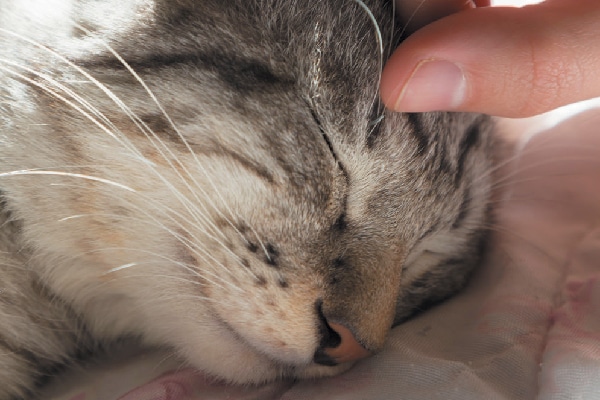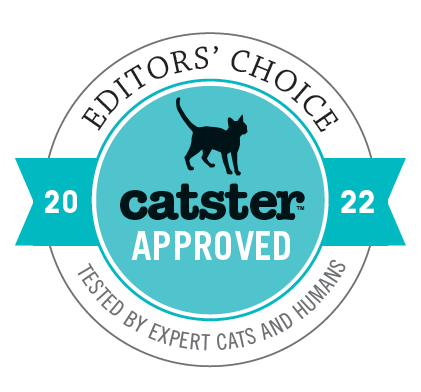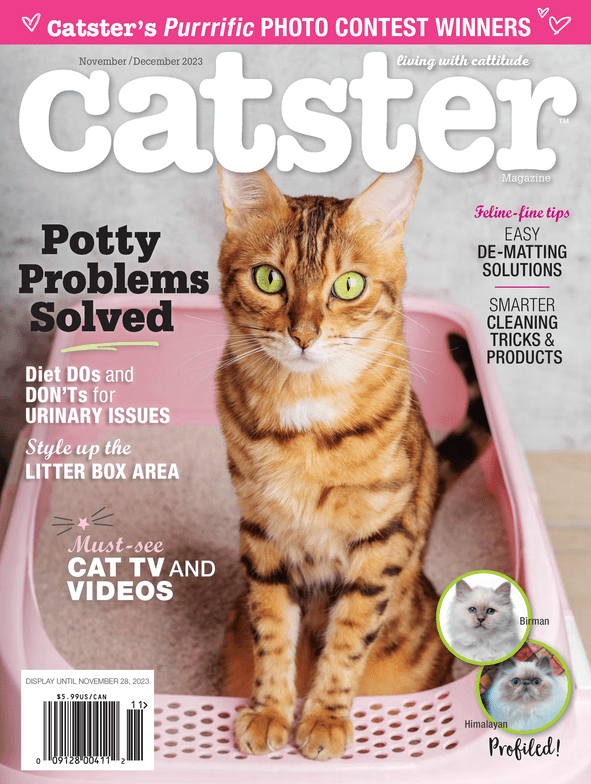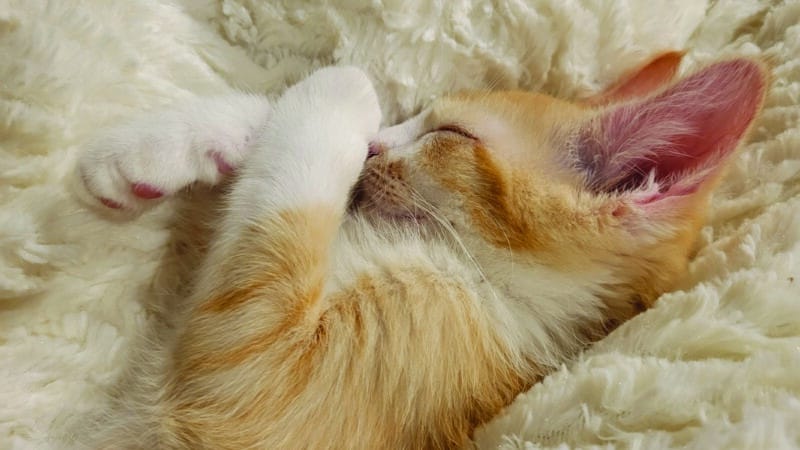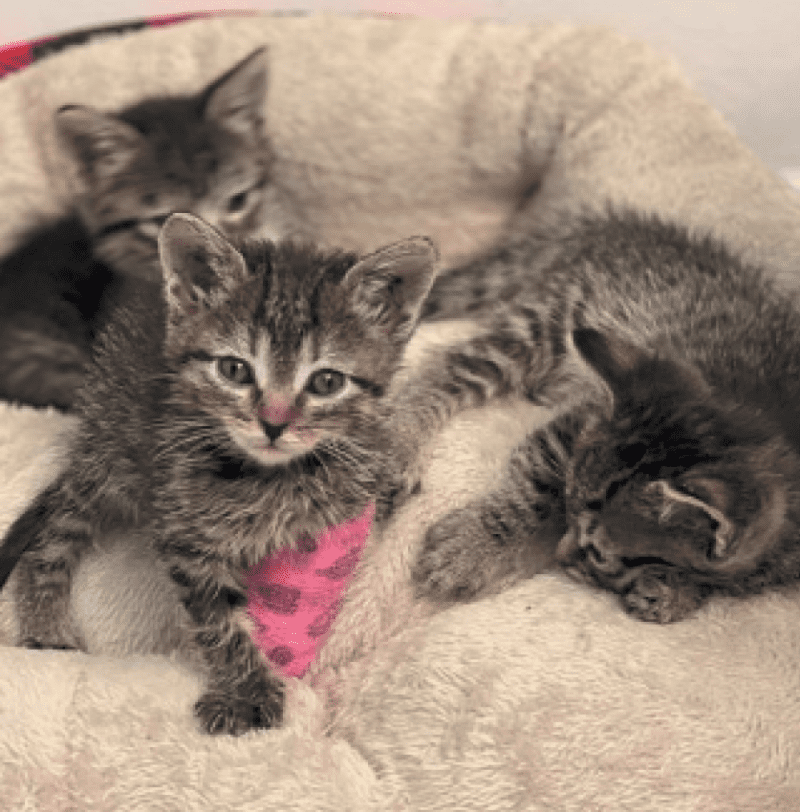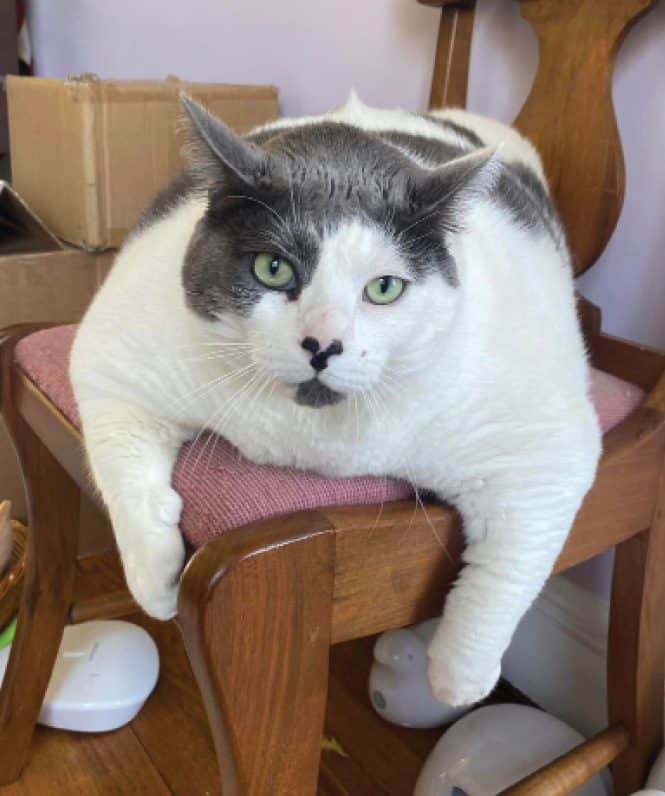Cats may rule on the internet, but when it comes to cancer information, research and resources, dogs are ahead of the pack. Even though cats outnumber dogs in U.S. households, and roughly 6 million are diagnosed with cancer each year, cat companions find critical information and support for feline cancer lacking. Thanks to some human and feline heroes, this is starting to change.
Coffee Cat

Speaking of cats and the internet, Coffee (@white_coffee_cat), the little brother of Instagram’s most famous cat, Nala, is a cat cancer hero to his 1.6 million Instagram followers. His parents, Pookie and Shannon, decided to be open with his fans about his battle with cancer in order to raise awareness of early detection and intervention.
Coffee’s parents knew something wasn’t right when they were grooming him. “He felt different … we realized he had a bump [on his body],” Shannon says. They were quick to act, taking him to the vet the next morning. Had they waited for even a week, Coffee may have suffered kidney failure. Shannon stresses the importance of “understanding how your pet’s body feels from head to toe,” adding that, “if you have a cat that doesn’t like to be touched, don’t miss a wellness exam.”
Pookie and Shannon debated sharing Coffee’s struggle with his fans and concluded it would be a betrayal not to because “Coffee belongs to everyone, he just lives with us.” In sharing his story, they found comfort in the support, reading every single comment posted on his account and every piece of mail they received.
Coffee has officially been in remission since August of 2016. He is a poster cat for fighting cancer and inspiring pet parents to be proactive about early detection and intervention.
The Brodie Fund

For some who fall on hard times, cancer treatment costs can stand in the way of seeking care. If you or someone you know has a cat with cancer but can’t afford treatment, we must tell you about The Brodie Fund. Cat behaviorist Sally Williams conceived of her 501(c)(3) nonprofit the very first day she took her tabby, Brodie, in for cancer treatment. “I sat in the waiting room and heard people talking about wanting to do treatment [for their pet] but struggling with the financial aspect of it and just thought to myself, ‘That’s not OK.’
“We give grants to the underdog — no pun intended!” says Sally, as The Brodie Fund provides financial assistance regardless of prognosis.
Sadly, Brodie lost his battle with cancer in the fall of 2016, but treatment provided him with a good quality of life for 13 months he wouldn’t have had otherwise. Brodie’s bravery and memory live on through his namesake fund. “When we give a grant, we give the gift of time,” Sally says.
Alycen Lundberg, DVM

The lack of feline cancer research makes for fertile research territory. “In cat cancer research there are so many unanswered questions … from a research standpoint, this is exciting,” says Alycen Lundberg, DVM, who is currently pursuing a PhD focused on feline oral cancer at the University of Illinois Veterinary Teaching Hospital.
Five years ago, her mentor, Dr. Tim Fan, introduced her to chemist Professor Paul Hergenrother, who had developed a new compound called IB-DNQ. Working together, they identified its potential in treating feline oral cancer. Dr. Lundberg believed it was important to pursue this, given how devastating this tumor type can be and the lack of effective treatments. Five years later, research has identified other cat tumors that may benefit from this compound and led to an understanding of how it can be translated for the treatment of head and neck carcinomas in humans.
Her first official clinical trial patient, Smokey, came from Montana, his parents driving through a snowstorm and staying at a hotel so he could participate in the trial. “That moment of realization drove me to do as much as I can for cats,” she says. “We have since been funded for a second clinical trial investigating radiation therapy and another compound.”
Dr. Lundberg gives this advice to pet parents: “The best thing you can do for your pet is to have a yearly physical examination by your family veterinarian. Because our pets are resilient, and often stoic, even the most observant pet owner may miss subtle changes or signs of there being something wrong.”
Her research and relationships with kitty patients further strengthens her commitment to feline cancer research. “I want to do better for these cats, because they deserve it,” she says.
So what can you do to help fight feline cancer?
- Be in tune with your cat’s physiology and behavior so you’re able to detect changes that might be signs of cancer in cats.
- Take your cat to annual wellness exams, and be sure your vet checks her mouth thoroughly.
- Educate yourself on the common signs of cancer – read about it here or ask your vet.
- If your cat is diagnosed with cancer, have a support system. You can always find one online (for example, @loveteambrodie on Facebook).
- Donate to organizations like thebrodiefund.org that provide grants to animals who wouldn’t otherwise get treatment.
Tell us: Has your cat experience feline cancer? What are your tips for fighting cancer in cats?
This piece was originally published on April 11, 2018.
Thumbnail: Photography @Gumpanat | Getty Images.
Tamar Arslanian resides in New York City with her two rescue cats, Kip and Haddie. She is the founder of IHaveCat.com and author of HarperCollin’s Shop Cats of New York, a Cat Writers’ Association Muse Medallion winner. Find her on Instagram and Facebook at @ihavecat and @shopcatsofnewyork.
Editor’s note: This article appeared in Catster magazine. Have you seen the new Catster print magazine in stores? Or in the waiting room of your vet’s office? Subscribe now to get Catster magazine delivered straight to you!
Read more about feline cancer on Catster.com:

